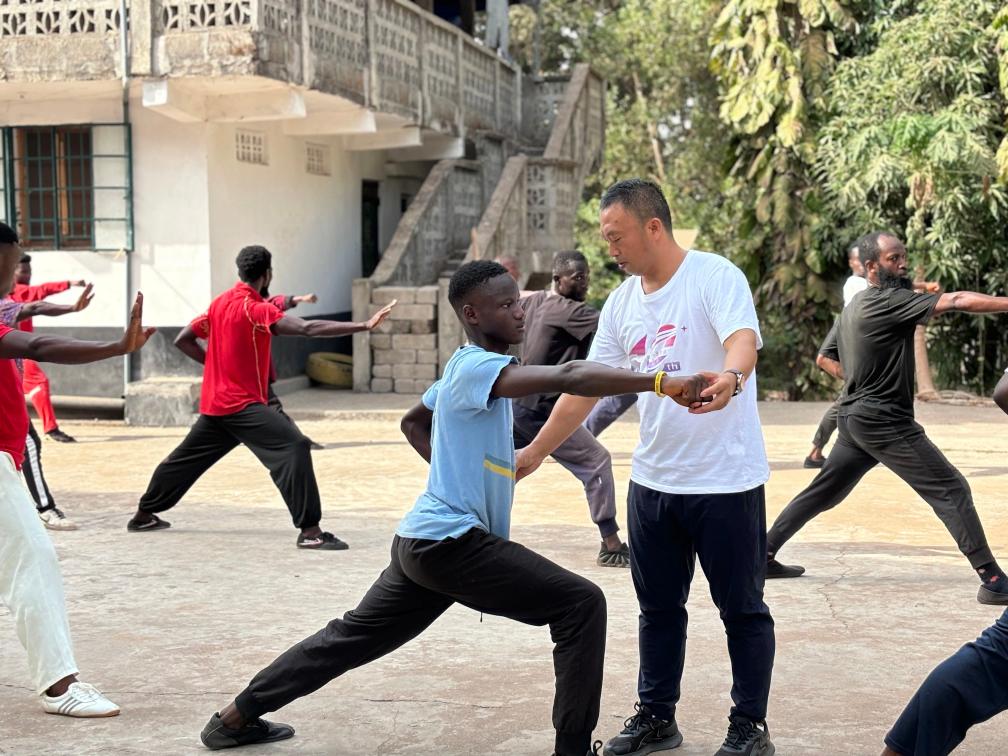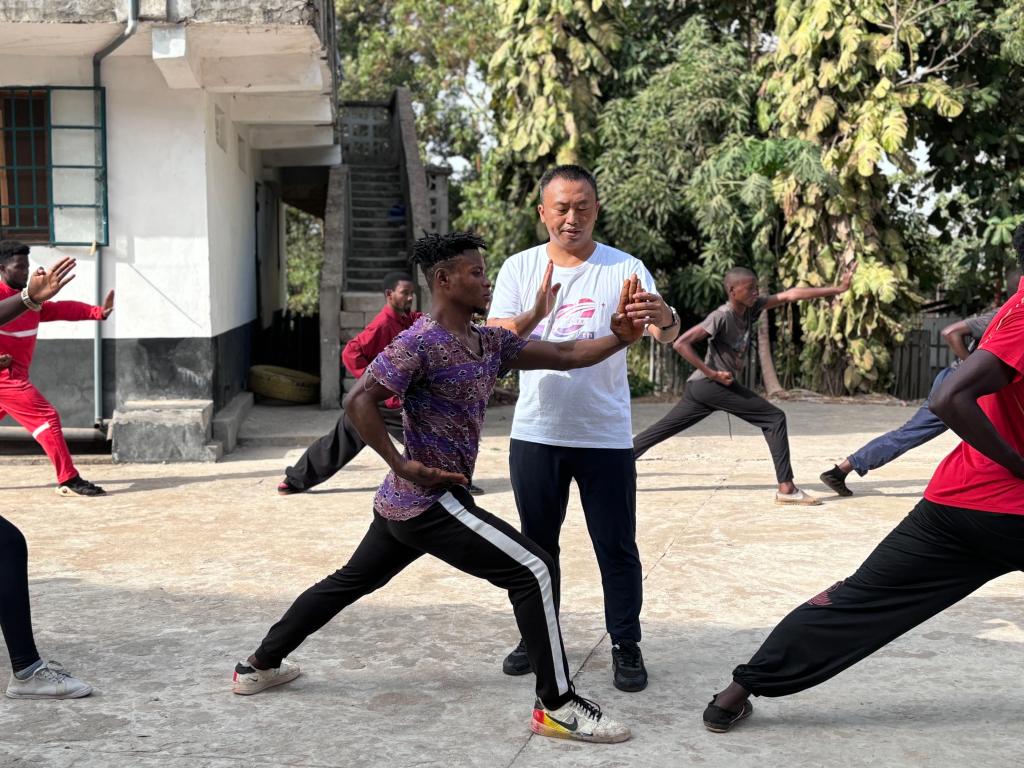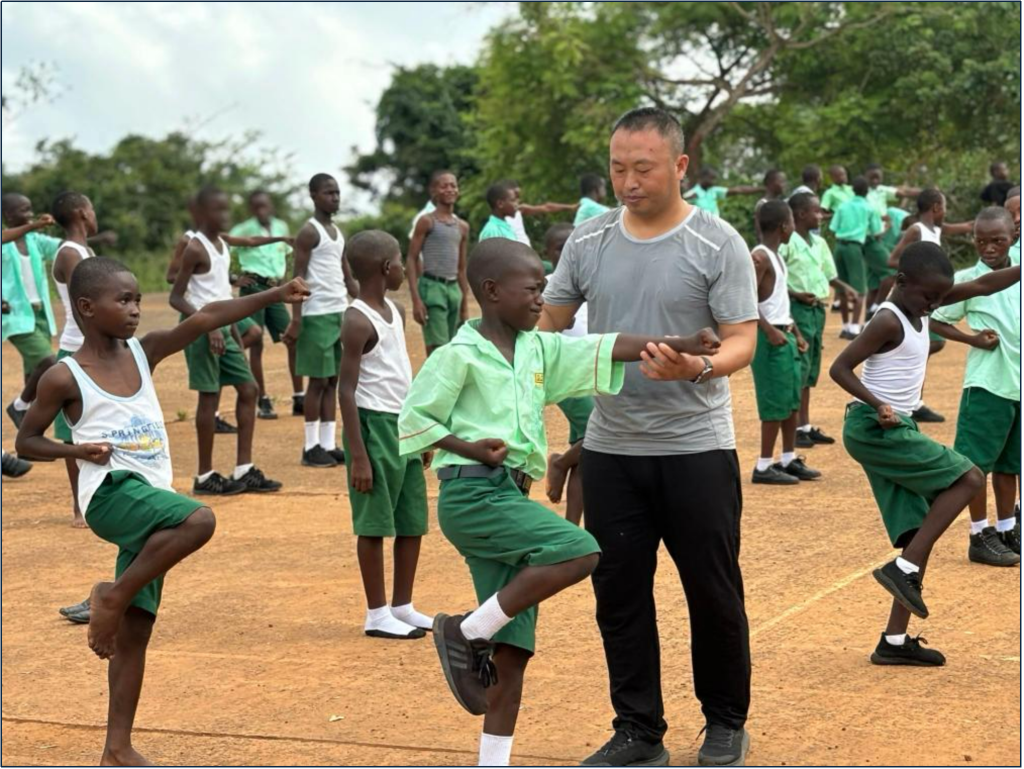Liu Wei, who teaches at the Confucius Institute at the University of Sierra Leone, has been sharing his expertise in kung fu, also known as wushu, since arriving in the country.
Influenced by the traditional martial arts culture of his hometown, Puyang City, in central China’s Henan Province, Liu has been interested in kung fu since childhood and trained at a specialized martial arts school.
After graduating from university, Liu taught at Songshan Shaolin Wushu College in Dengfeng City, Henan Province, fulfilling his dream of teaching martial arts to students.
In December 2021, at 30, he embarked on a journey to Africa and became a martial arts teacher at the Confucius Institute in Sierra Leone.

Liu’s decision was inspired by a conversation with a friend who was teaching kung fu in Africa. After learning about the strong interest in Chinese martial arts there, Liu wanted to share his skills and help more people develop a passion for kung fu.
In Sierra Leone, Liu found many students physically suited for martial arts. He noted that many young people there had learned about kung fu through martial arts-themed movies and TV shows.
Liu recalled that students showed great interest whenever he mentioned Shaolin, a symbol of Chinese kung fu. Some even expressed a desire to visit China after their first meeting, he said.
To help students grasp martial arts essentials quickly, Liu spent nights researching and improving teaching methods to overcome cultural and language barriers.
Liu demonstrates classic kung fu routines to students during class breaks and uses movie clips to enhance their understanding.
He teaches at multiple locations weekly, with each class lasting three hours. Sierra Leone’s hot weather is physically challenging, often leaving Liu drenched in sweat after demonstrations.
Despite the challenges, Liu enjoys practising with students, teaching skills from basic stances to Shaolin fist and saber techniques.

Liu teaches more than just martial arts techniques, believing students should understand the spirit of Chinese kung fu, which emphasizes self-improvement and virtue, alongside physical skills.
“Martial arts classes should not be just about martial arts techniques,” Liu noted.
Liu teaches students the Chinese language, martial ethics, etiquette, and other knowledge that he considers important for developing their overall martial arts capabilities.
Liu also involves students in various cultural exchange activities, including martial arts performances, the “Chinese Bridge” language proficiency competition, and traditional Chinese festival events.
Liu’s efforts have increased students’ enthusiasm for Chinese kung fu and culture.
A student who trained at the Shaolin Temple, a renowned centre for kung fu in Henan Province, is preparing for a Chinese proficiency test. The student plans to study in China to become a kung fu and language teacher.
Chen Xuebin, Chinese Director of the Confucius Institute at the University of Sierra Leone, says Liu has taught nearly 1,000 students in Africa over three years. Chen notes growing interest in Liu’s classes, attributing it to admiration for his teaching.
Liu has established a deep bond with these students, and his sincerity has earned everyone’s “genuine affection,” Chen noted.
Liu said he hopes to build a “martial arts bridge” in the future to bring more African students talented in martial arts to China and help them explore the world beyond their borders.
